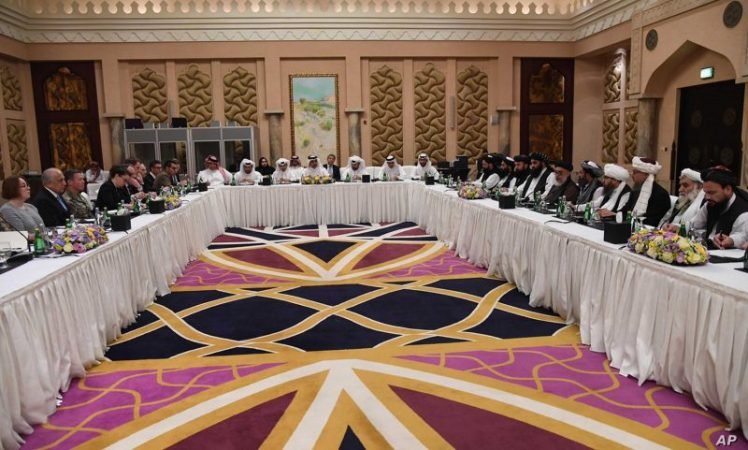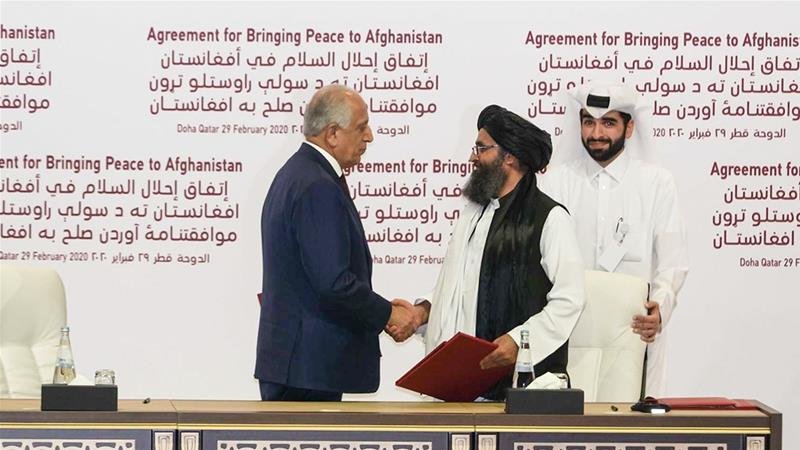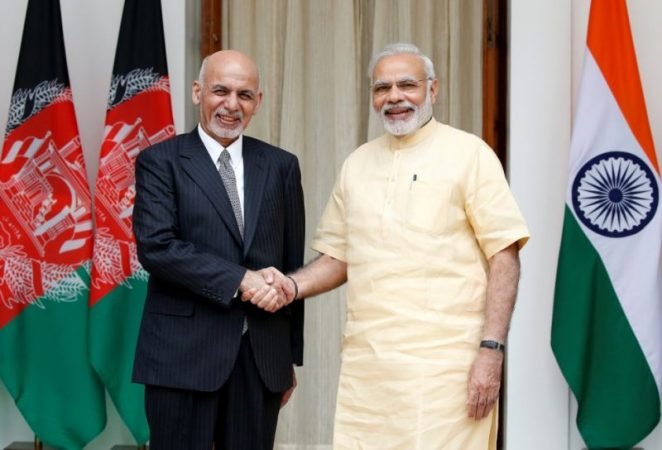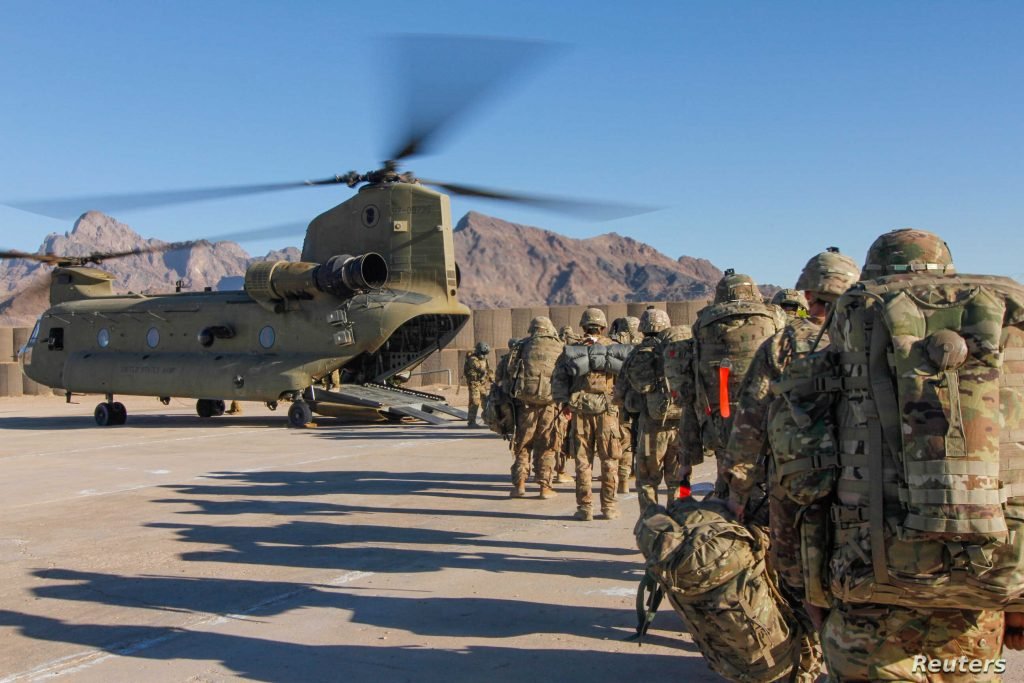Afghan peace process

The announcement by the Biden administration to withdraw the troops on September 11, the non-participation in peace talks by the Taliban in Turkey recently followed by the postponement of dates has shown the indecisiveness of the peace process. On one hand, the withdrawal of NATO/U. S troops will have an impact on regional stakeholders tremendously, especially India and on the other, the delay in signing the peace agreement is causing more violence in Afghanistan than peace.
Journey of the U. S’s longest war in Afghanistan
Since the 9/11 terror attack on the World Trade Centre in New York and the Pentagon in Wahington D.C by the Taliban headed by Osama bin Laden, the U.S under the Bush administration signed a law Authorization for Use of Military Force (AUMF)in response to the attack which killed nearly 3000 people. This law gave them the legitimacy to use force against any terror groups especially al-Qaeda and Taliban who were behind the 9/11 attack. After launching a “war on terror” in Taliban-controlled Afghanistan with a series of airstrikes the same year; the NATO alliance and ethnic Pashtuns supported the U.S with troops on the ground and Taliban activities were softened. The UN had also intervened and deployed international peacekeeping forces in Kabul under the Bonn Agreement.
Over the years, there had been decisions to end the war in Afghanistan because the agreement was condition-based. The bedrock of the U.S – Taliban deal was signed on February 2020 under the Trump administration which had an agreement to withdraw the troops by May 1, 2021. However, the Biden administration wants to end the war in peace by involving regional countries and the international organization, United Nations to have a wider framework and has pushed the date to September 11.

Regional stakeholders in Afghanistan’s peace process
Iran- being an immediate west neighbor to Afghanistan, plays a central role in the peace process. The presence of the U. S’s troops is a security threat to Tehran and this is why it supports the Taliban government, the only common ground between Tehran and the Taliban. Iran a Shia Muslim nation and Afghanistan a Sunni majority nation has an ideology difference yet it has a balanced relation as the Taliban has appointed a Shia Hazara, Mawlavi Mahdi as a shadow district chief. Iran uses the Taliban as a proxy to counter the U. S’s geopolitical interests. In terms of trade and investment, Iran exports its oil, construction materials, carpets, and home appliances while importing agricultural goods and nuts from Afghanistan. The construction of the Khaf-Herat railway line by Iran has contributed to strengthening its ties. Hence, the approach of Iran’s strategy centers around withdrawing the U.S intervention which will affect Afghanistan and the region in the long run.
Russia– as a permanent member of UNSC, Russia has agreed to the U.S-Taliban deal of 2020 but it has its security and geo-political issues. Instability in Afghanistan and the region can cause extremist threats, drug trafficking, and the spread of radical ideology since its southern part has close borders with central Asian countries. Due to its porous borders, it also sees a threat of the emergence of ISIS. At the same time, Russia does not want to see an indefinite presence of the U.S troops as it jeopardizes its geo-political and economic interests in Afghanistan and the region. These factors make Moscow a proactive player in the peace process.
China – for Beijing, it seeks to deepen its military cooperation with Afghanistan as it has based its presence in Wakhan Corridor that connects Afghanistan and China giving them a boost in their hard power. It also wants to curb Wahington’s role in the region economically and geo-politically and wants to win over Afghan’s heart by reconstruction and development programs by competing against India in this area. However, the deal will make the Chinese vulnerable to human rights violations against the Uyghur Muslims in Xinjiang province even though it had reached out to the Taliban earlier. While China is working its relations with both the powers-Afghanistan government and the Taliban, yet it faces a challenge in the possible future conflict.
Pakistan- Islamabad has a direct stake in the success of the peace process because it has always seen foreign influence in the region as a threat to their agenda of funding and training the extremist militants. It has never legitimatized the Afghan-led Government but favored the Taliban government so that it can control the Afghan regime and weaken the Afghanistan-India relations.

India- being a top investor in the region, the peace deal will impact New Delhi significantly. As a key player in the region who has always held a position of an Afghan-led, Afghan-owned, and Afghan-controlled government and opposed any matters relating to the Taliban has shifted its interest maturely by supporting a dialogue between Afghanistan and Taliban at the 9th heart of Asia Conference in Tajikistan. Because of no direct border with Afghanistan, India’s role in the peace talks has been at the periphery despite being offered a seat at the Istanbul conference. Under the backdrop of the strategic partnership signed between India and Afghanistan in 2011 New Delhi has used soft power to create a responsible, self-confident Afghanistan. India has invested in developmental projects like power generation, education, health, irrigation facilities, and also engages in humanitarian aid. A recently signed agreement on shatoot dam near Kabul also known as the friendship dam, training the Afghan soldiers, and capacity-building are some of the examples. India’s strategic, economic, and security will have a tough challenge if the Taliban comes to power. Another challenge that India can face is Pakistan’s use of Afghan soil for anti-India activities and create political instability regarding the Kashmir issue.
Afghanistan – the present Ghani-led government supports democracy, women’s rights, minority rights, and freedom of speech for the people and the media. The intra Afghan talks hosted by Moscow in March proved to be a threat to the Afghan people as the talks favored the Taliban. Considering, the Afghan government is not able to get the ball in its court, President Ghani had also taken a gambit by delaying the peace deal of the Doha accord by refusing to release the Taliban prisoners as per the agreement. But the chase for a long-lasting peace is a far-fetched idea for Afghanistan because the UN-backed US-Taliban deal has comforted the government to accept the power-sharing government.
Taliban – has got the driver’s seat in the peace process as it had been longing for the U. S’s withdrawal so that it can govern their nation in their Islamic conservative way. Their promise of not letting any terror groups like al-Qaeda function on their soil is too good to be true as Pakistan-backed Haqqani Network and al-Qaeda in the Indian subcontinent (AQIS) are carrying out attacks on the civil society and according to a recent March 2021 report, Taliban has control over 19 percent of all districts in Afghanistan with at least 47 of them being contested in more than 66 districts. This gives them political legitimacy. The support from regional players like Iran, China, and Pakistan has also built its political credibility.

Conclusion
Although the withdrawal of the U. S’s troops is going to end the twenty years war between the Americans and Afghans it should not be an end in itself rather a means to achieve peace within and around the state. Negotiating with the Taliban leaders for a power-sharing government gives them an upper hand in this whole process thus, creating an uncertain environment. While regional stakeholders have certain motives in the peace deal, it requires a balanced regional consensus in making this deal a peaceful one. Keeping in mind the civil war in Afghanistan, the regional stakeholders must come together and negotiate a path for a wave of everlasting peace.


















